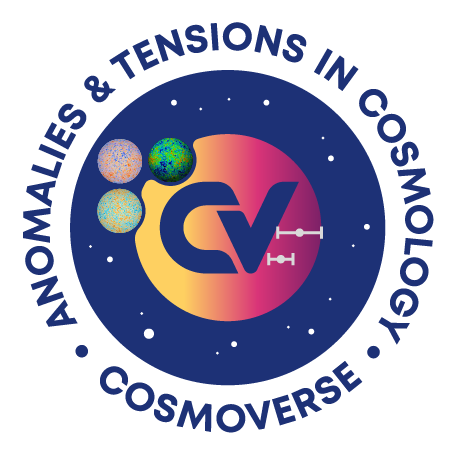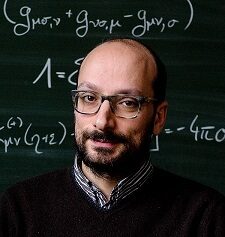What is your name, affiliation, academic position, and job title?
My name is Vincenzo Salzano and I am affiliated with the Institute of Physics of the University of Szczecin, Poland, where since June 2019 I hold the academic position of Associate Professor (dr hab., prof. US) in the local Cosmology Group.
What is your field of research and/or what project are you involved in?
I work on testing modified gravity theories and exploring the nature of dark matter and dark energy with astrophysical and cosmological data, ranging from galaxy dynamics/kinematics to clusters of galaxies, from Type Ia Supernovae and Baryon Acoustic Oscillation to Cosmic Microwave Background and the Large Scale Structure. I am a member of the “Theoretical Cosmology and Fundamental Physics Group” of the galaxy survey “JPAS: Javalambre Physics of the Accelerating Universe Astrophysical Survey”.
What are your research plans?
In May 2022 I won a grant from the National Science Centre (NCN) of Poland within the programme PRELUDIUB BIS 3, titled “Probing the nature of dark matter with modified Poisson’s equations”. I got funding to employ a Ph.D. student at the University of Szczecin who will work on this topic in the next four years. As for the most recent and “in progress” plans, I am involved in many different topics, from addressing the Hubble tension with gravitational lensing from clusters of galaxies, to testing alternative dark energy models (within the context of Entropic gravity theories) and their impact on the current cosmological tensions, to forecast analysis for the JPAS survey by means of the Fisher Matrices approach applied to matter power spectrum observables, BAO and Redshift Space Distorsions (RSD).
What role do you think a community network like CosmoVerse can play in developing theoretical astroparticle physics and cosmology?
Nowadays, the word “cosmological tensions” clearly refer to a well defined topic, probably the main hot topic (or, at least, one of the “hottest”), in both theoretical and observational cosmology. I could not avoid to be involved in the debates and the corresponding research, as they touch the core of modern cosmology, they will drive any next future activity and I think that any possible “new” revolution in cosmology will likely come from trying to find a solution for them. Although, with a pinch of wise self-criticism, I think that the direction we have taken as community is not correctly focused. To give birth, every day, to dozens of models which try to solve cosmological tensions by touching/modifying one ingredient or another of the cosmological pie will only lead to have an humongous number of models which do not really deliver a crucial step forward and within which we will be unable to find a “red line”. I read once in a public article, that from the “cosmological tensions” debate, a new Einstein might emerge, meant as someone who is able to find the “real key” for a new cosmological revolution. Probably that is true, or maybe not, but I do have this feeling that we still miss what is the real culprit, and we need to work to find a “brand new” answer. If we had clear in mind what is (are) the question(s)… In this sense CosmoVerse can provide a very useful service to our scientific community, by bringing together, collecting and coordinating the huge amount of work which is done by many of us scientists everyday in a single arena, where discussions and collaborations may lead to new and decisive advances. Within the tensions debate, I have recently noted (or that is my impression) an increasing inclination to polarize the discussion, with parties advocating for a chosen “solution” who are not really keen or open to other solutions, etc…I think this is not positive for our goal, which is the progress of science. The CosmoVerse project potentially has all the resources to be a moment and a virtual place where these parties can meet and finally work together.
What advances or new results are you excited about or looking forward to?
I do not want to pick up a specific topic which I consider as the most exciting in cosmology. It would be quite hard to write down a short list if you are a very curious person, as I am. But I would like to say that I think that “this historical” period is exciting by itself. A few months ago we have seen the new spectacular images from the James Webb Space Telescope. We are waiting for new surveys, like Euclid or the Square Kilometer Array, to start running and provide brand new data. All of these facts point to a new era in cosmology which is opening right now. What we will discover and what we will learn, I do not know (in my defence I can say that I have a really bad foretelling superpower…). But whatever it will be, I expect it to be truly exciting.
What question would you have liked us to ask you, and what would you have answered?
Question: Do you think we are going to solve any of the cosmological tensions, sooner or later?
Answer: Definitely, no. (but I really hope that my bad foretelling superpower is mode on now…)

